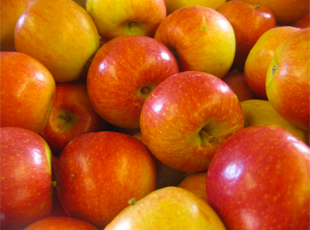Apple Trees From U.S. Under Quarantine in Canada
Canada warned the United States Tuesday about a pest problem previously not seen in North America involving apple trees. The organism does not poise any immediate threat to human health.
 The U.S. Food and Drug Administration’s Animal and Plant Health Inspection Service (APHIS) has been notified by the Canadian Food Inspection Agency (CFIA) that apple proliferation phytoplasma (APP) was detected in an apple orchard near Kentville, Nova Scotia. The affected orchard has been placed under quarantine. This is the first APP detection in North America.
The U.S. Food and Drug Administration’s Animal and Plant Health Inspection Service (APHIS) has been notified by the Canadian Food Inspection Agency (CFIA) that apple proliferation phytoplasma (APP) was detected in an apple orchard near Kentville, Nova Scotia. The affected orchard has been placed under quarantine. This is the first APP detection in North America.
A “Pacific Gala” apple orchard in the area was placed under quarantine after APP was detected there. The trees originated in the United States and were shipped to Canada in 2008.
The U.S. Department of Agriculture’s Animal and Plant Health Inspection Service (APHIS) was informed about the problem by the Canadian Food Inspection Agency.
APP, or ‘Ca. P. mali’, is considered to be a quarantine pest in both Canada and the U.S. It is present throughout Europe, where it is considered to be one of the most critical diseases affecting apple trees.
“It is important to note that no symptoms of APP have been observed in the source nurseries or reported in the U.S. at large, and the source of infestation is unknown at this time,” a statement issued by APHIS said.
The USDA agency said it was providing “trace forward” information to CFIA and conducting tests at some nurseries. At this time, CFIA has not imposed new restrictions on importation of apple trees from the U.S.
APP is spread through propagation practices with infected material including budding and grafting. Long-distance dispersal of APP occurs through the trade of infected rootstock, scionwood or budwood. Specific insects, including certain psyllids, froghoppers and leafhoppers also spread APP, however it is not transmitted through seed or fruit or pruning.
Symptoms of APP include:
- Shoots around axillary buds, which create a broom-like appearance at the end of affected branches
- Leaf rosetting
- Enlarged leaf stipules
- Reduced growth and smaller, less sweet fruit


